Imagine navigating a maze blindfolded; that’s your website without SEO in the industrial world! SEO is the guiding hand leading you through the digital labyrinth to the prize – visibility and growth. For industrial companies, mastering SEO is not just a fancy trick; it’s necessary to stand out in a competitive online landscape. Plerdy, the light in digital marketing, can help. This article, crafted in Plerdy’s insightful blog, breaks down the essentials of SEO for industrial companies, turning the complex into the achievable. Let’s dive in and decode the secrets of successful industrial SEO.
Understanding the Basics of Industrial SEO
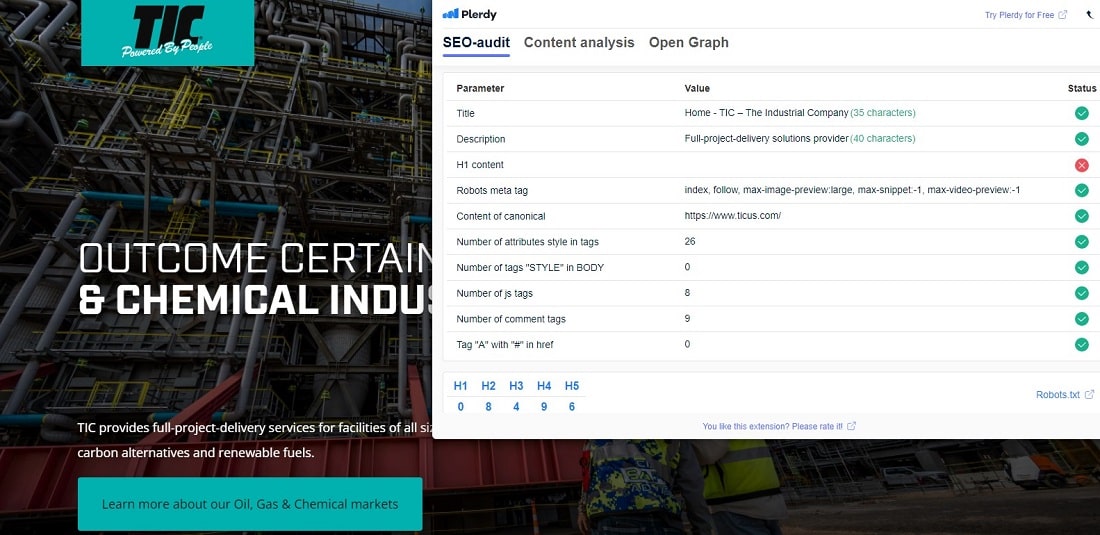
Diving into the world of SEO can feel like unraveling a complex puzzle. It’s about understanding this puzzle and fitting the right pieces together for industrial companies. Let us explain industrial SEO and how it powers your digital presence.
What is SEO?
Search engine optimization (SEO) isn’t just an industry buzzword; it’s a crucial strategy. SEO improves your website’s visibility on search engines like Google for industry-related items and services. The better your site’s SEO, the more likely it is to catch the eye of potential clients. It’s about being the first answer to a customer’s question, ensuring your website isn’t lost in the ocean of online content.
Why SEO Matters for Industrial Companies
For industrial companies, SEO bridges your business to potential buyers. It’s not just about attracting traffic; it’s about attracting the right traffic. People are searching for your solutions, and SEO helps them find you. In an industry where specific, often technical solutions are sought-after, being visible in search results directly influences your chances of capturing and converting leads. This isn’t just speculation; studies show that the top-ranking page in Google’s search results has a 31.7% click-through rate.
Industrial SEO basics are like game rules. It’s about ensuring your website speaks the language of search engines and potential clients. Integrating effective SEO practices isn’t just a one-time task; it’s an ongoing journey. As the landscape evolves, so should your approach to SEO, ensuring that your industrial company doesn’t just keep up but stands out. SEO boosts your website’s exposure on Google for industry-related products and services.
Keyword Research and Optimization
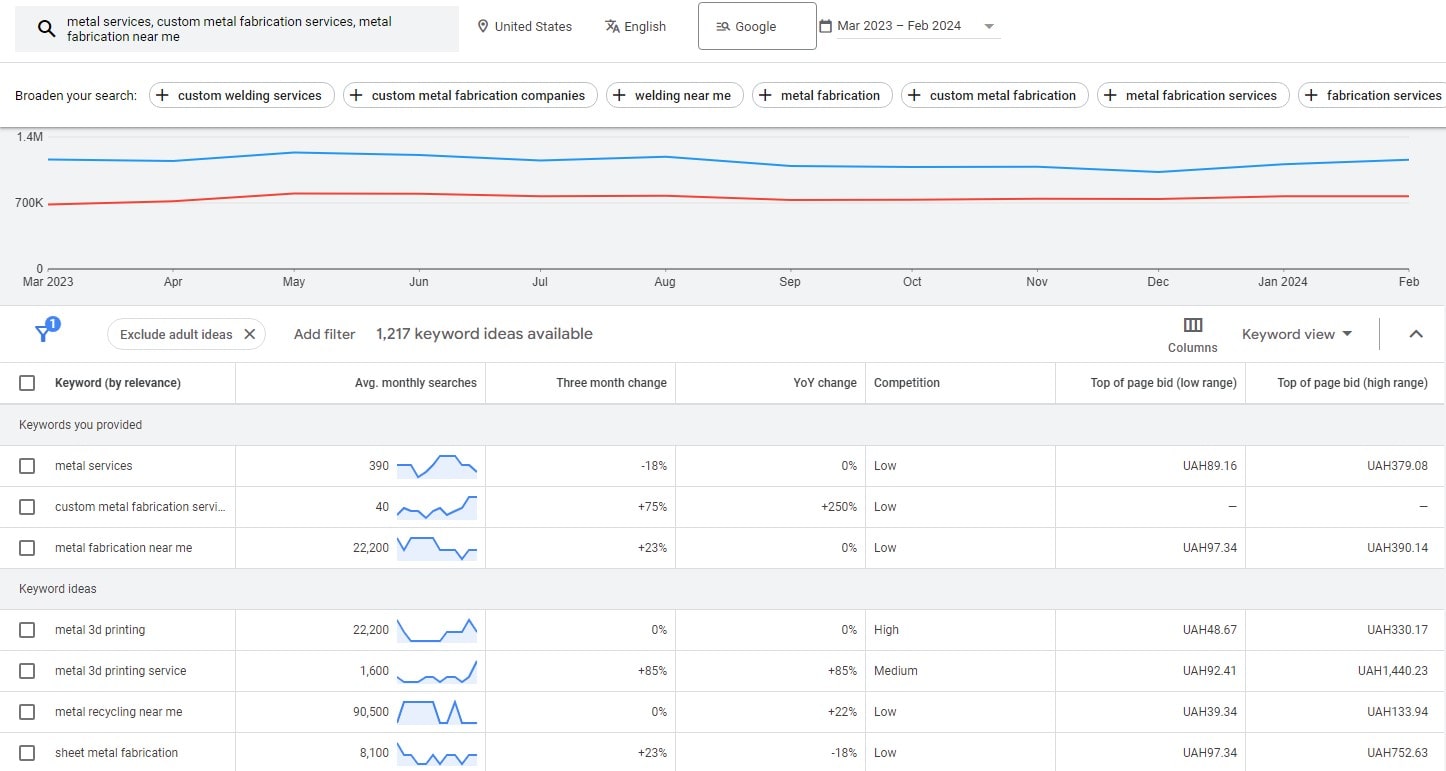
Finding the right keywords is like unlocking a treasure chest in the vast world of SEO. Industrial enterprises must identify search terms and phrases used by potential clients. Let’s delve into how you can effectively research keywords and optimize your content to ensure your industrial company shines in search engine results.
How to Conduct Keyword Research
Keyword research is the compass guiding you to SEO success. Start by brainstorming terms related to your industry, products, and services. Google Keyword Planner and Moz Keyword Explorer reveal search volumes and competition. It’s not just about high-volume keywords but also relevance to your audience. For instance, “custom metal fabrication services” may be more effective than a broader term like “metal services”. Dive into forums and social media platforms where your target audience discusses industry-related topics. This direct source of information can reveal valuable, often overlooked keywords.
Implementing Keywords Strategically
Once you have your keywords, it’s time to weave them into your website’s tapestry. Start with your website’s titles, meta descriptions, and headings. These areas are prime real estate for your primary keywords. However, the key is balance. Overstuffing your content with keywords can be as harmful as not using them. Your content should read naturally, providing valuable information to your audience. Google’s algorithms are smart and getting smarter. They can distinguish between quality content and keyword-stuffed pages.
Each page on your site should focus on a specific keyword or phrase, ensuring the content is relevant and informative. Use synonyms and related phrases to enrich the content, making it more comprehensive and engaging.
Keyword research and optimization are ongoing processes. The digital landscape and user behaviors are always evolving. SEO success depends on regularly assessing and modifying your keyword strategy. You can boost your website’s visibility and establish new industrial connections by mastering keyword research and optimization.
Quality Content Creation
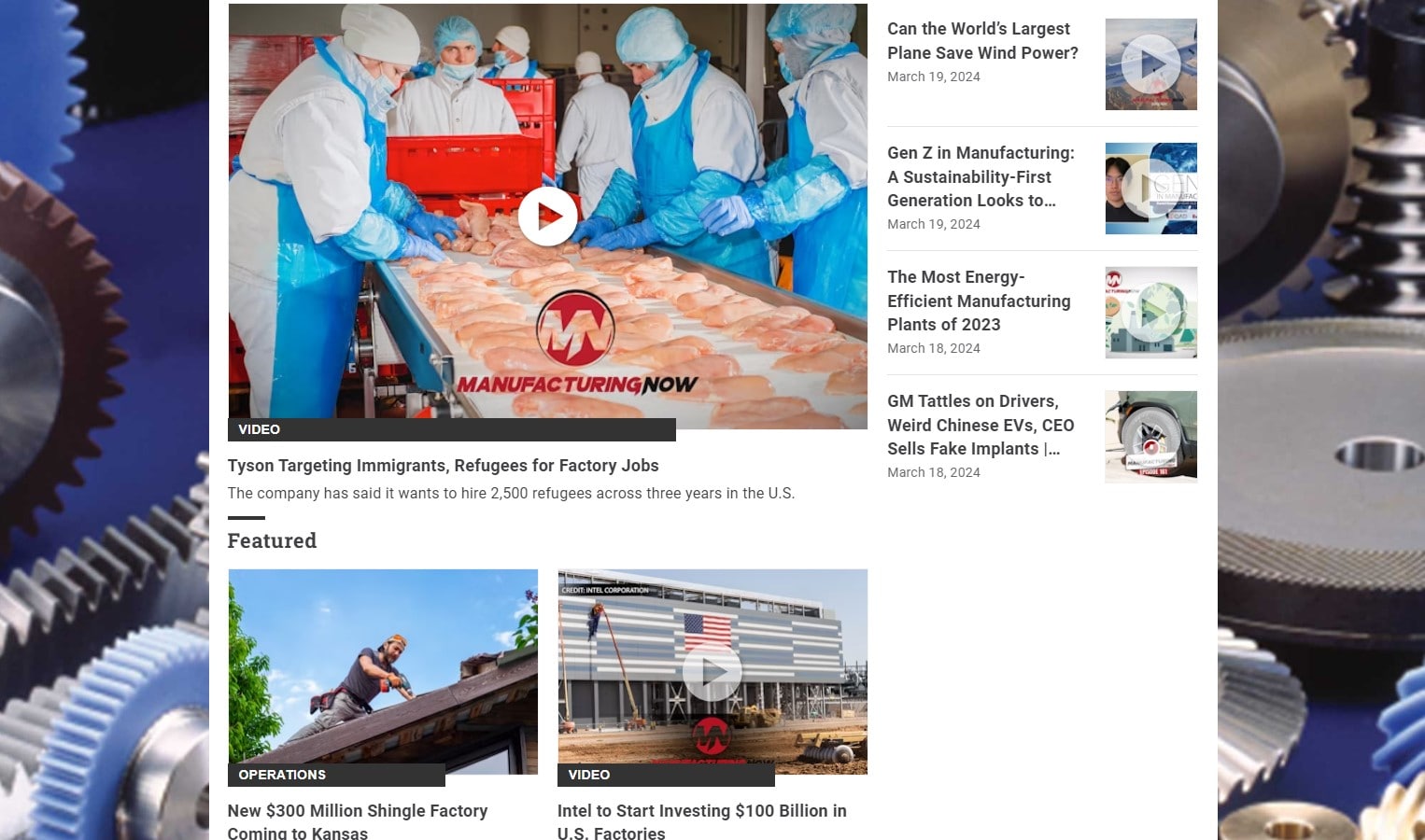
In the digital realm, content is king. For industrial companies, this isn’t just a saying; it’s a strategy to build credibility and engage potential clients. Let’s explore how crafting quality content can elevate your industrial SEO and resonate with your audience.
Types of Content That Engage Industrial Audiences
Quality content in the industrial sector varies from insightful blog posts to detailed case studies. Each piece should serve a purpose, whether educating about a new technology or showcasing your expertise in a specific project. Blogs are perfect for sharing industry insights and company updates, while case studies demonstrate your success and problem-solving skills in real-world scenarios. Don’t forget about whitepapers and e-books; these long-form contents are excellent for delving deep into technical topics and providing substantial value to your audience.
Writing for Your Audience
When creating content, it’s crucial to write with your audience in mind. Understand their challenges, needs, and industry jargon. This understanding helps tailor your content to address specific questions and pain points. Use a tone that resonates with professionals in your field – it should be knowledgeable yet accessible. The goal is to provide solutions, not just information. Your content should position your company as a thought leader and a problem solver in the industrial sector.
Quality content creation involves understanding your audience and delivering valuable, relevant information. It’s about building trust and establishing your brand as a go-to resource in the industrial field. By consistently producing high-quality content, you’re not just improving your SEO rankings but fostering a relationship with current and potential clients. Remember, in industrial SEO, quality content is the cornerstone of success.
On-Page and Off-Page SEO Techniques
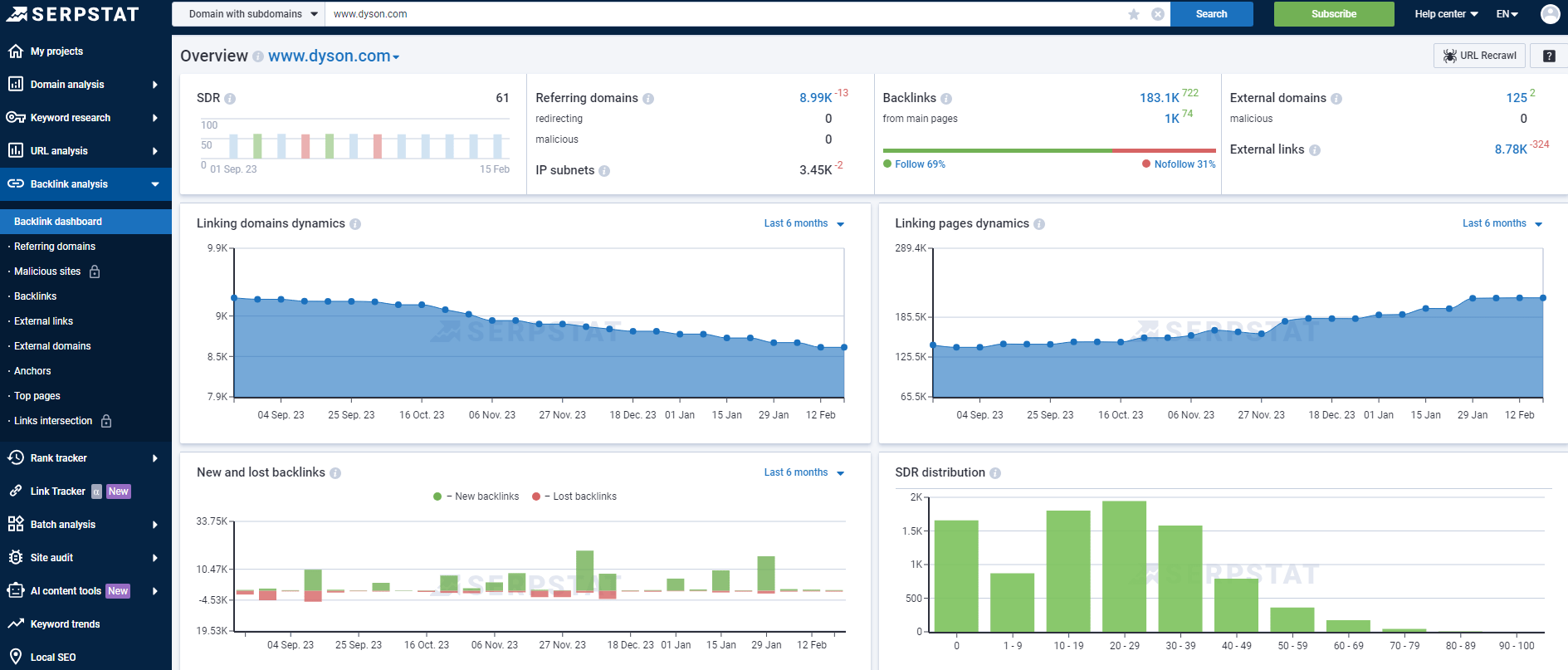
SEO is like a two-sided coin: one side is on-page SEO, visible and tangible on your website, while the other, off-page SEO, works behind the scenes. For industrial companies, balancing both aspects is key to a robust SEO strategy.
On-Page SEO Strategies
On-page SEO involves optimizing elements on your website that you can control directly. This includes incorporating keywords into your content, but it goes beyond that. Optimizing title tags, headers, and meta descriptions helps search engines grasp page context. Optimizing images through alt tags and file names significantly boosts your site’s visibility. Another critical aspect is ensuring your site’s load speed and mobile responsiveness, crucial for search engine rankings and user experience.
Off-Page SEO Strategies
Off-page SEO boosts your website’s authority. This is primarily achieved through backlinks – links from other reputable sites to yours. These act as endorsements, signaling to search engines that your content is valuable and trustworthy. Social media marketing and guest blogging can boost your off-page SEO by increasing your online presence.
Mastering both on-page and off-page SEO is essential for industrial companies looking to climb the search engine rankings. While on-page SEO makes your site more accessible and understandable to search engines, off-page SEO builds its reputation and authority. They constitute a holistic approach to boosting your internet presence, traffic, and business. In SEO, every detail counts, and a well-rounded approach is the key to success.
Mobile Optimization and User Experience

In today’s fast-paced digital era, a mobile-optimized website isn’t just a nice-to-have; it’s a must-have. For industrial companies, ensuring your website is accessible and user-friendly on mobile devices is crucial for staying competitive. Let’s explore the importance of mobile optimization and user experience.
Making Your Site Mobile-Friendly
Mobile optimization means designing your website to look and function seamlessly on mobile devices. This involves responsive design, automatically adjusting content and layout based on the device’s screen size. Google’s mobile-first indexing prioritizes your website’s mobile version. Therefore, a non-optimized mobile site can harm your search engine rankings. Tools like Google’s Mobile-Friendly Test can help you evaluate your site’s mobile-friendliness.
Enhancing User Experience for Better SEO
User experience (UX) on mobile is about more than looks. It’s about how easily users can navigate and interact with your site. A good mobile UX keeps loading times short, buttons clickable, and information easily accessible. A positive mobile experience can significantly lower bounce rates and improve the time users spend on your site, which are key SEO factors.
Mobile optimization and user experience are critical components of your SEO strategy. They improve site usability and search engine rankings. In the industrial sector, a mobile-optimized site with a strong user experience is no longer an option but a necessity. By prioritizing these characteristics, you are pleasing search engine algorithms and satisfying your audience’s requirements and preferences, making your digital presence more engaging.
Analyzing and Utilizing SEO Metrics
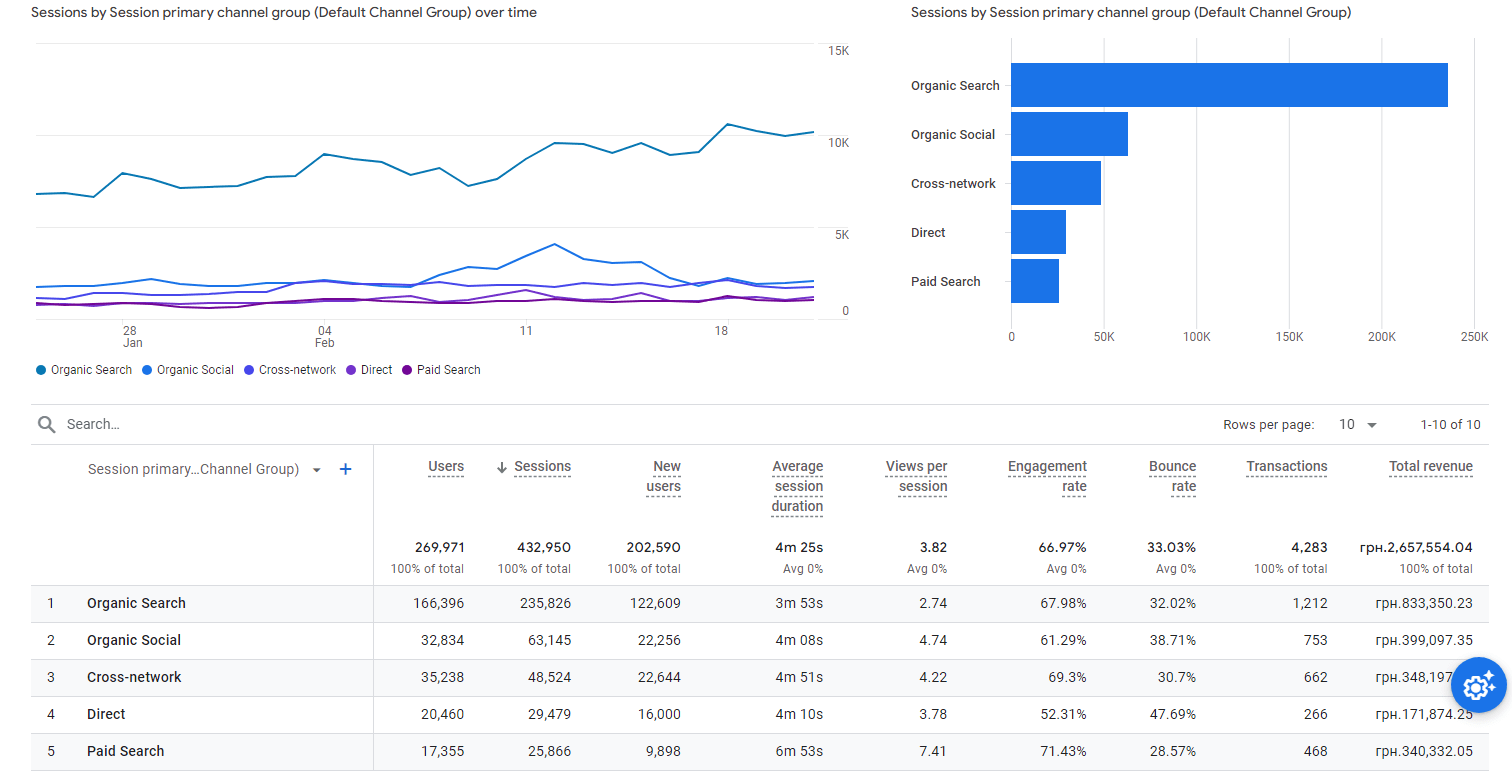
In SEO, diving into metrics and analytics is like embarking on a treasure hunt. The data you uncover offers invaluable insights into the performance of your strategies. By understanding and using these SEO metrics, industrial companies may thrive online or get lost in the digital shuffle.
Key SEO Metrics to Track
The road to SEO success is paved with data. Key metrics include organic traffic, which indicates the number of visitors from search engines, and bounce rate, reflecting how many visitors leave your site quickly. Another vital metric is the conversion rate, showing the percentage of visitors who take the desired action, whether filling out a contact form or downloading a resource. Google Analytics provides information to measure these variables and more.
Using Data to Refine SEO Strategies
Data isn’t just numbers; it’s a story about your website’s performance. Analyzing these metrics allows you to identify what’s working and what isn’t. For instance, a high bounce rate might indicate that your content isn’t meeting users’ expectations or your site’s loading speed needs improvement. Use this data to refine your SEO strategies. It may be time to revamp your content, enhance your site’s mobile experience, or improve your keyword strategy.
Analyzing and utilizing SEO metrics is crucial for industrial companies aiming to enhance their online visibility. This data-driven strategy lets you adjust strategies, making your SEO efforts a targeted, ongoing campaign. Embrace the power of analytics to guide your SEO journey, and watch as your digital footprint grows stronger, driving more traffic, engagement, and, ultimately, business growth. Remember, in SEO, data is your most valuable guide.
Staying Updated with SEO Trends
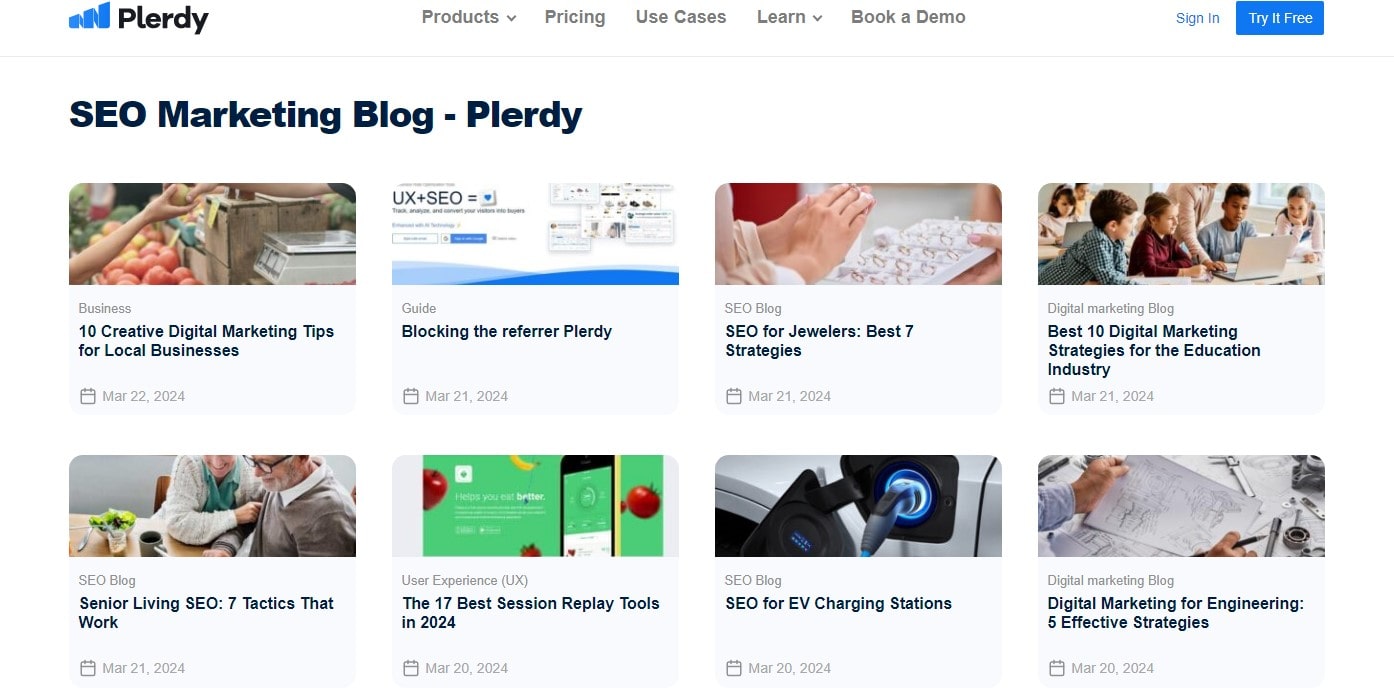
SEO is an ever-evolving landscape like a river constantly changing course. For industrial companies, staying afloat with these changes is beneficial and essential for maintaining digital relevance and competitive edge.
Monitoring SEO Trends
Keeping your finger on the pulse of SEO trends is crucial. This involves staying informed about algorithm updates from search engines like Google, which can dramatically affect search rankings. Resources such as Moz’s blog or Search Engine Journal offer valuable insights into the latest developments in SEO. Additionally, attending webinars and conferences and following thought leaders in the field can keep you informed about new strategies and technologies.
Adapting to Algorithm Changes
Adaptation is key in the SEO game. Each algorithm update can bring new challenges and opportunities. For example, Google’s BERT update 2019 emphasized the importance of natural language processing, making it essential for websites to focus on creating more conversational and relevant content. Staying flexible and ready to tweak your SEO strategy in response to these changes can ensure your website remains visible and high-ranking.
Staying updated with SEO trends and adapting to algorithm changes is vital for any industrial company looking to thrive online. In the digital world, complacency can lead to obsolescence. By staying informed and adaptable, you ensure that your SEO strategy is not just current but also forward-thinking, ready to embrace whatever new trends the future may bring. In the dynamic world of SEO, change is the only constant.
Conclusion
Navigating the intricate SEO world can be daunting, but it becomes an exciting journey toward success with the right strategies. From keyword research to trend monitoring, we have covered industrial SEO basics. SEO is a continuous process, demanding attention and adaptability. If this journey through SEO has piqued your interest, dive deeper into the ocean of digital marketing knowledge with other insightful articles on Plerdy’s blog. For a tailored approach to elevate your SEO game, consider Plerdy’s comprehensive tools and services. They’re your compass in the vast sea of digital marketing, guiding you toward enhanced online visibility and success.
